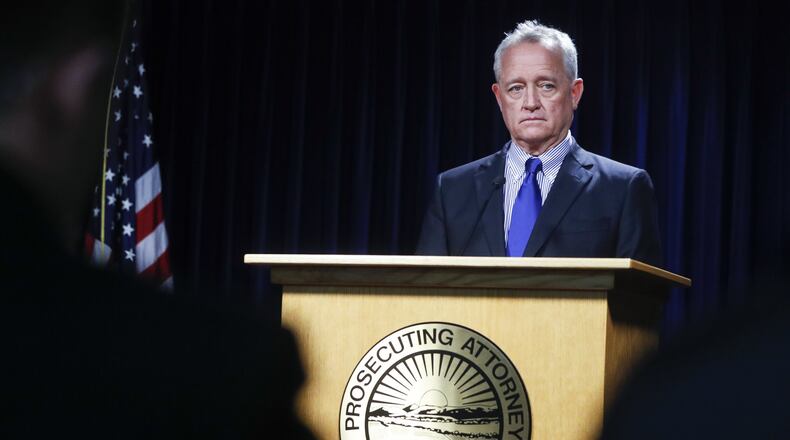Deters said the Tensing retrial coincides with the retrial of convicted serial killer Anthony Kirkland. Both are set for May 2017, which would make it difficult for him to prepare for both cases.
“Even though one or both of these cases may be reset, it is important that both of these serious cases have prosecution teams who can devote the time needed to prepare for these retrials,” Deters said.
Julie Wilson, chief assistant prosecutor and public information officer, said Deters is not inferring that either of these cases could be delayed due to this shift in teams.
“As with any case, there is always the possibility that the case could be rescheduled due to witness schedules, attorney conflicts, etc., but the change in prosecutors should not impact the date,” Wilson said.
Deters said in a press release that both Tieger and DeGraffenreid will provide a “fresh set of eyes to the case.”
“This was a hard decision for me, as I feel strongly about prosecuting the Tensing case myself, but it is crucial that both cases have prosecutors assigned who can properly prepare,” Deters said.
Jurors couldn’t reach a unanimous verdict on either charge filed against Tensing, a former University of Cincinnati police officer — murder and voluntary manslaughter — for killing motorist Sam DuBose during a traffic stop in July 2015.
Judge Megan Shanahan declared a hung jury and a mistrial.
Deters said issues of race, DuBose’s criminal background and lifestyle (he had 13 children by at least seven women) “absolutely crept into the jury room” even though Shanahan banned testimony about DuBose’s criminal and health records.
He suggested he might seek to move the trial elsewhere — perhaps Cleveland or Columbus — to improve the chance of finding jurors who haven’t been exposed to the deluge of media coverage the case has received here.
But for now, the retrial is still set to be held in Hamilton County beginning May 25.
Judge Leslie Ghiz on Dec. 14 imposed a gag order in the Tensing case, citing “unprecedented and extensive media coverage” as she tries to limit pretrial publicity that could make it more difficult to seat a jury for the May trial.
About the Author
